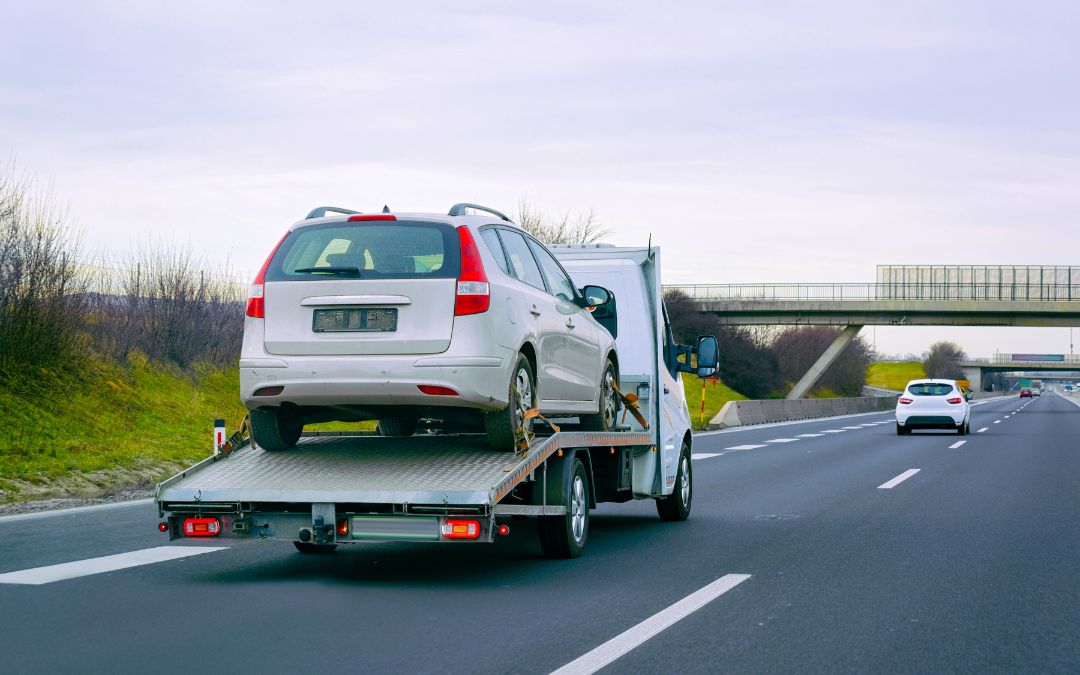When your car decides to say “no more” on the roadside, the decision of whether to call a tow truck or file an insurance claim can seem daunting.
You might wonder, how much does it cost to tow a car out-of-pocket, or if your insurance towing coverage will handle the expense. Each option has its own set of advantages and disadvantages, and understanding them can help you make a more informed choice.
Whether you’re facing a one-time breakdown or frequent travel in areas prone to car issues, this guide will break down the costs and benefits of both methods. If you’re ever in need of emergency towing services, or simply need equipment transported, contact Hanifen Towing today.
Understanding your towing options
Understanding the various towing options available to you is the first step toward making a confident decision in the midst of a roadside emergency. One of the most straightforward options is to pay for towing your car out of pocket.
This method often provides faster service because you can call a tow truck directly without waiting for insurance approval. Additionally, you have the flexibility to choose any tow truck service you prefer, which can be particularly useful if you have a trusted provider or need immediate assistance in a remote area.
However, the cost can vary significantly depending on factors like the distance, type of vehicle, and the time of day, so it’s essential to have a general idea of how much it costs to tow a car in your area to avoid any unpleasant surprises.
What about insurance?
On the other hand, many insurance policies include insurance towing coverage as part of their comprehensive coverage. This means that if you are involved in an accident, your insurance may cover the cost of towing your vehicle to a repair shop or your home. While this can be a significant financial relief, it’s crucial to review your policy terms to understand the specific benefits and restrictions.
For instance, some policies have a limit on the distance they will cover for towing, which could be a deciding factor when choosing your insurance plan. Additionally, using insurance for towing might require you to use a tow truck service approved by your insurance company, which could limit your options. Despite these potential drawbacks, insurance paying for towing your car can be a valuable resource, especially if you frequently drive long distances or in areas where roadside assistance is crucial.
Cost breakdown: Out-of-pocket vs Insurance
Before you decide, it’s crucial to weigh the out-of-pocket costs against what your insurance might cover. Paying for towing services directly can be a straightforward solution, especially if you have the funds available. The cost of towing a car can vary widely depending on the distance, the type of vehicle, and the towing company you choose.
For instance, a simple tow might cost around $50 to $150, while a more complex situation, such as a long-distance tow or a specialized vehicle, could run into several hundred dollars. While this may seem like a significant expense, paying out-of-pocket allows you to avoid the potential increase in insurance premiums that can result from filing a claim.
On the other hand, using insurance towing coverage can help spread the financial impact over time. Most comprehensive auto insurance policies include towing coverage, which means that the cost of towing your car will be covered up to a certain limit. This can be a huge relief, especially if you’re facing a significant towing bill.
However, it’s important to note that using your insurance for towing can have its own set of limitations. For example, your insurer might have a network of preferred towing companies, which can limit your choices. Additionally, the process of filing a claim and waiting for it to be processed can add delays, which might not be ideal if you need immediate service.
Pros & cons
One of the key advantages of paying out-of-pocket is the immediacy of service. When you need your car towed, you can call a towing company directly and have your vehicle moved without waiting for insurance claim processing. This can be particularly beneficial in emergencies where every minute counts.
Moreover, paying for towing services yourself ensures that you maintain privacy. You won’t need to report the incident to your insurer, which can be a relief if you prefer to keep certain incidents off your insurance record. This can also prevent the possibility of your insurer raising your premiums or even canceling your policy based on the frequency or nature of claims.
However, relying on out-of-pocket payments can have its downsides. If you’re caught off guard by a towing expense, it can be a financial shock, especially if you don’t have an emergency fund set aside. This is where insurance towing coverage can provide peace of mind. By spreading the cost over your insurance premiums, you can avoid a large, unexpected expense.
Yet, it’s essential to understand that using your insurance for towing can exhaust your coverage limits, which might affect your ability to make future claims. For instance, if your policy has a low towing coverage limit and you use it frequently, you might find yourself without coverage when you need it most.
Making the best financial decision
Ultimately, making the best financial decision requires a careful balance of your immediate needs and long-term implications. If you find yourself needing towing services only occasionally, it might make more sense to pay for towing your car out of pocket. This approach can be cost-effective, especially if you have a high insurance deductible or if the towing distance is relatively short.
However, frequent travelers or those who often drive in areas prone to car issues should consider the benefits of insurance towing coverage. Regularly facing towing needs can quickly add up, and having a reliable insurance policy can save you significant money over time.
Know your insurance coverage details
It’s also crucial to evaluate your insurance deductible. If your deductible is high, the cost of using your insurance for minor incidents might outweigh the benefits. In such cases, paying out-of-pocket for smaller towing needs can be more economical. On the other hand, if your deductible is low and you frequently encounter situations where your vehicle needs to be towed, leveraging insurance to pay for towing your car can be a wise choice.
Another important factor to consider is the policy limits on your insurance coverage. Some policies may have lower limits, which could lead to additional out-of-pocket costs if the towing service exceeds the covered amount. Always review your policy details to understand the maximum coverage provided. This will help you avoid any surprises and make an informed decision about whether your insurance coverage is sufficient for your needs.
By carefully considering these factors, you can make a financial decision that aligns with your specific circumstances and needs. Whether you choose to pay for towing your car out of pocket or rely on your insurance, the key is to be prepared and informed. This way, you can ensure that you are making the best choice for your wallet and your peace of mind.

